Happy holidays to all of our BWW members as well as to the families and friends who support them in their efforts as writers.
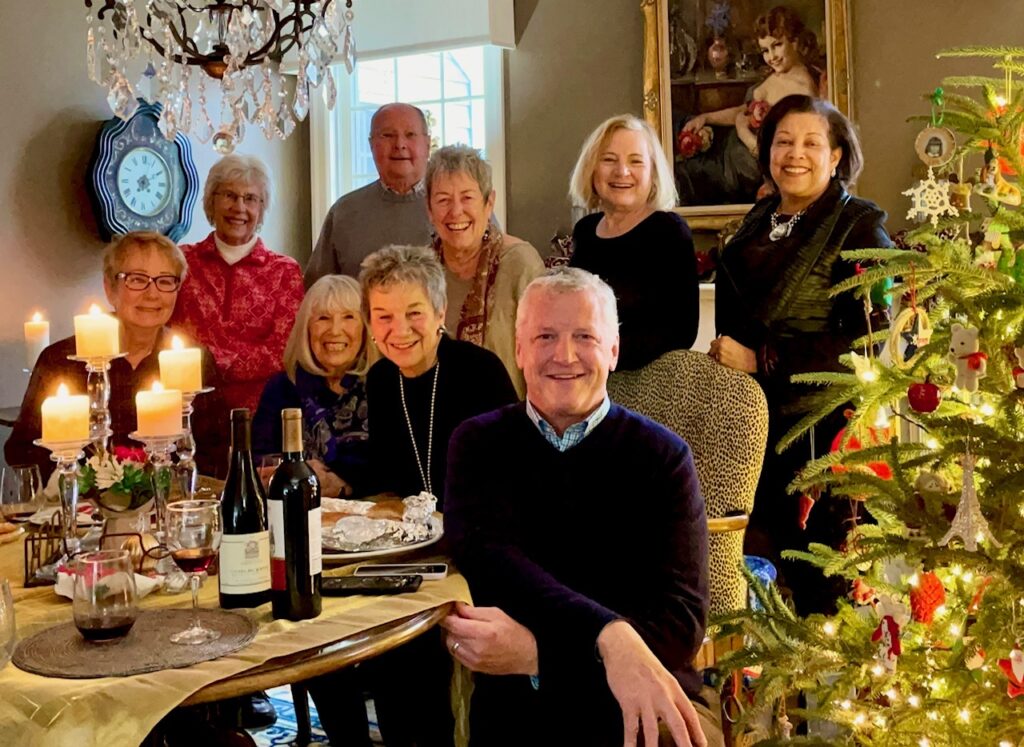
Season greetings from the BWW Lodge group.

Happy holidays to all of our BWW members as well as to the families and friends who support them in their efforts as writers.

Season greetings from the BWW Lodge group.
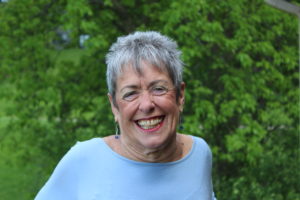 Trudy Kleckner was recently featured in the Arts & Culture section of Quintessential Barrington magazine where she shared some thoughts on writing poetry that we think are worth sharing here. When asked how she turns an ordinary event like visiting a bakery into art she responded: “The poet’s job is to tell a story that moves people. It asks the reader to notice something.” Here’s her poem that accompanied the article.
Trudy Kleckner was recently featured in the Arts & Culture section of Quintessential Barrington magazine where she shared some thoughts on writing poetry that we think are worth sharing here. When asked how she turns an ordinary event like visiting a bakery into art she responded: “The poet’s job is to tell a story that moves people. It asks the reader to notice something.” Here’s her poem that accompanied the article.
In The Bakery
the air smelled of butter and sugar and fresh baked bread
a stranger stood ahead of me in line
brown hair sprinkled with grey and smiling eyes
she ordered six scones
i asked the baker for three
was told they were out
the woman turned and offered to share
oh no i replied
i will make another choice
i did not know her
name or age
but i knew she was kind
i did not know where she was born
or where she lived
but i knew she was kind
i did not know her religion
or her political preferences
but i knew she was kind
in this world
filled with meanness violence division
she gave me what i yearn for
more than scones
she offered kindness
We noticed. The poem’s story lifted us. When asked what poetry’s super power is Trudy responded: “Brevity. Poetry says a lot with few words.”
Explaining her lack of punctuation in the poem she said: “Know the rules before you break them. For me, the comma and the period interrupt the flow. Gradually I eliminated punctuation all together. I use line breaks and spaces for a pause.”
The article included some of her thoughtful tips on how to write poetry.
When asked about the impact poetry might have if read or written by people everyday she said people would be: “Kinder. More thoughtful. Curious. More open to one’s self and others.” We agree!
Trudy Kleckner’s third book of poetry Bring Light is in the process of being published and will be available soon.
 Book reviews are an important tool for authors to promote their books. Getting reviews should be a part of any author’s marketing plan. Including an “Ask” can be as simple as a personal conversation, an email, a release announcement on social media, or after a book signing, interview, or speech an author gives. There is always the Internet. A search for “How to get a book review” may show drop down search subjects that include “…By the Guardian, On Goodreads, By Publishers Weekly, On Amazon, From the New York Times” etc. It’s worth spending the time to learn what works best for you. How do BWW members get their books reviewed? Here are some answers from our authors.
Book reviews are an important tool for authors to promote their books. Getting reviews should be a part of any author’s marketing plan. Including an “Ask” can be as simple as a personal conversation, an email, a release announcement on social media, or after a book signing, interview, or speech an author gives. There is always the Internet. A search for “How to get a book review” may show drop down search subjects that include “…By the Guardian, On Goodreads, By Publishers Weekly, On Amazon, From the New York Times” etc. It’s worth spending the time to learn what works best for you. How do BWW members get their books reviewed? Here are some answers from our authors.
Lance Erlick, author of the Android Chronicles series, with Emergent released in 2019, said: “This book (and series) was traditionally published through Kensington. They hit their own channels and paid for NetGalley, which provided a number of the reviews. I also reached out to people who had reviewed my prior books and some of them reviewed for me.” Here are two of the reviews he received for Emergent:
“Near future sci-fi writing at its very best.” —Jon Land, USA Today–bestselling author
“Erlick ramps up the tension and action.” —Publishers Weekly
Note: NetGalley is described on its website as helping “publishers and authors promote digital review copies to book advocates and industry professionals.”
Dorothy Windsor’s books are traditionally published as well but she also does some of her own leg work to get reviews: “I told everyone I knew about the book, and posted about it on twitter, Facebook, and Instagram.” Her publisher sent eBooks to lots of book bloggers. Here are two reviews she received on Amazon for her most recent book The Trickster published in 2021.
“The medieval setting with a touch of magic provides a great place for Dilly and Fitch to work out what it means to fit in and belong when family doesn’t provide the love they need.” – Windy City Reviews
“A less intense Game of Thrones meets Pirates of the Caribbean.” — Goodreads Reviewer
When asked what she does with the reviews Dorothy said: “Once I receive reviews, I quote from them on social media with a sell link for the book.”
Sharon Shea Bossard, author of Finding My Irish and Finding Your Chicago Irish, says: “I just ask. I go to all the Irish authors. It’s a community.” She interacts with this community through conversations, emails, and Facebook. When she receives reviews, she may add select quotes on the front and back cover of the book. Her most recent book, Veil of Silence: An Irish Memoir was published in 2020 with a review quote by Emmy Award winning journalist and NBC-TV correspondent Mike Leonard on the front cover.
“A fearless, splendidly written account of a flawed, Chicago-based family, rich in true-life observational detail and redemptive inspiration,” he wrote.
Toni Louise Diol adheres to the just ask idea as well. She said, “An online poetry magazine published several poems and had very nice comments to make when she accepted them. I asked her if she would write a review for my first poetry book. She was kind and did.”
Being strategic can work. One member said: “Those who plan to publish should consider building goodwill by reviewing other authors long before their book is published. Folks will be more inclined to review a book for a colleague who’s previously reviewed his/her book.” BWW members are colleagues who can reach out to each other for reviews. “We have a few terrific members who write reviews. I’m grateful for any support,” said one BWW member. But that same person went on to say it’s frustrating when colleagues don’t follow through. In other words, don’t lead an author on. If you can write a review, do it. If you can’t, just tell him or her so. In addition to writing reviews there are many ways members can support each other including liking and sharing posts on social media platforms and showing up at events.
As our authors have shown, they’ve developed multiple ways for getting reviews and using those reviews to promote their books.
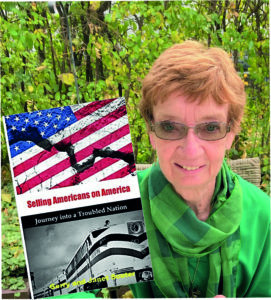 Janet Souter began writing short stories and eventually joined her husband in writing traditionally published histories, biographies, and fine arts books. Her career includes eight years at the Daily Herald newspapers where she served as a community news coordinator, a weekly columnist and feature writer. She co-authored the recently published book “Selling Americans on America” with her husband Gerry Souter.
Janet Souter began writing short stories and eventually joined her husband in writing traditionally published histories, biographies, and fine arts books. Her career includes eight years at the Daily Herald newspapers where she served as a community news coordinator, a weekly columnist and feature writer. She co-authored the recently published book “Selling Americans on America” with her husband Gerry Souter.
How did the writing of this book come about?
In 2015, we were hunting around for another writing project to pitch, so I thumbed through a book titled “The Columbia Chronicles of American Life 1910-1992”. I decided to check out the WWII post-war years, because it was a period we didn’t know a lot about. I found an item about the 1947 Freedom Train and how it traveled the country with original historical documents. We discovered there weren’t any books about it. From then on, we were hooked.
What did you find to be the best resources for your research?
A paper titled “Freedom Train: Citizenship and Postwar Political Culture”; several newspaper articles of the time, and references in books about the postwar period were valuable resources. Also, we found collateral material in the McLean County History Museum in Bloomington, IL. We couldn’t find anyone who had visited it, but one or two people had family photos taken with it.
What fascinated you about the book’s subject?
For me, it was the way that every town—over 300 of them—enthusiastically welcomed the train. They celebrated it with parades and pageantry during “Rededication Week” prior to the train’s arrival. Townspeople offered their services to the train’s staff, especially to the Marines who guarded it. I don’t know if there would be that much dedication today.
Will you describe some of the strife you discovered during the years 1947 to 1949 when the Freedom Train was crossing the U.S.?
Most of all, there was tremendous labor unrest. In 1946 alone and into 1947 there were more walkouts than at any other time in our history. President Truman wanted to continue the rationing that had been going on during war time. There was a housing shortage, coupled with inflation. People were tired; they wanted the good life.
The Freedom Train was privately funded by the advertising industry, civic groups, entertainers, and business leaders. It was also apolitical. How did you decipher their motivation and cooperation?
In addition to what I mentioned above, I believe there was an undercurrent of fear of “creeping socialism” or Communist infiltration. The people that made up the American Heritage Foundation (a different group than the AH today) wanted to re-ignite the nation’s patriotism so that “foreign ideologies” wouldn’t take hold. They saw the Freedom Train as the perfect messenger, believing “you can sell ideas as well as merchandise.”
Does writing now impact how you wrote about then?
Every book is different and has its own voice. For this book, we wanted to tell how the people were impacted by seeing the original documents that showed our fight to achieve and hold onto our rights and liberties.
Why was it important to include little-known historical facts in the book?
As always, we didn’t want to make this book a dull relating of facts. It is important for the reader to know the mindset of the period. We tried to tell some of that through particular incidents: Brooklyn teen-age girls “kissing” the train, leaving lipstick smudges on it. A woman who visited the train was heard commenting, “I bet the damn Russians don’t have anything like this.”
Have you seen any of the original documents, artifacts, or memorabilia that were on the train?
I recall seeing the Declaration of Independence and possibly the Constitution on a class trip to Washington when I was in high school. It is impressive to view a piece of paper that was touched by our Founding Fathers centuries ago.
Why did you decide to draw comparisons of then to now in the book?
It was a natural. In the 1940s people were unhappy with the way the country was going at the time, but they were worn out from all they endured through the Depression and the war. Today the unhappiness is divided along political lines. No one wants the divisiveness, but neither party or philosophy wants to meet the other halfway.
After writing the book, do you feel hopeful for America’s future?
I always feel hopeful for the future. In the past I’ve seen the pendulum swing the other way when situations become too extreme, which they certainly are today. But it will take several years, I think.
You have written nonfiction and fiction in many genres. Do you have a favorite?
For me, I especially like anything to do with American history.
What do you like most about traditional publishing?
We get paid upfront, either through an advance against royalties or work-for-higher. Neither pays a lot but we have worked with some wonderful people who recommend us to other publishers. As we all know, the publishing world has changed and we must adjust and re-think the process.
What are you working on now?
We’ve decided to concentrate on fiction, which doesn’t require travel or the need to find images. It can be frustrating, challenging and full of angst, but it can be fun too. I love doing the research.
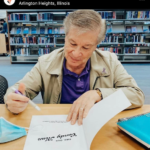
Author Harry Trumfio
Harry Trumfio is a former public school superintendent, a private school headmaster, and served as Chairman of the Department of Education at Benedictine University. He is also the father of four children and grandfather to six. In two recently published books he explores and honors the role of fathers.
When you began the story about your father what did you want to prioritize?
Of Saints and Wooden Nickels was the result of many breakfast meetings with my dad as I endeavored to learn more about his early life. I actually incorporated some of what I learned at the eulogy I gave at his funeral. After his death I t reflected up what I had learned and thought his story would make a good book. I wanted to develop his character and the mystery surrounding his family in Italy. I needed to begin with his early life in Chicago and his place in his close-nit family.
How did you get the reader engaged in what your father experienced?
I tried to provide descriptions of characters, places and events and then describe my dad’s reactions and those of the characters involved in the situations. His drive to discover a closely guarded family secret is the moving force behind the story.
Point of view is a primary tool in writing. How did you tackle it in the story?
The story is written in the third person. If I were to do it again, I think I would choose first person. I believe it would provide a greater exploration of his reactions and feelings at the time of each of the incidents described in the story.
Was it hard to portray struggles when the main character is your father?
Since I had spoken with my dad about the various situations described in the book, I had an idea of their content. Writing dialog to go along with the scenes was a bit of a challenge but since I had a pretty good grasp of my dad’s personality, I think I was able to write a realistic portrayal of the circumstances and encounters throughout his quest.
What resources did you rely on when writing the story?
Of course, my major resource was my remembrances of our breakfast conversations about his early life in Chicago, and his quest to discover the family secret. I also relied on the Internet for descriptions of the ships, locations and conditions in Italy during the time of the story.
What did you find was the best way to keep driving the story forward?
I used the chronology of his venture and the incidents he told me about along the way to keep the story moving forward.
What makes your book “An American Story”?
My dad was a self-made man. The book is a coming-of-age story. I believe his story illustrates that dogged determination growing up, if continued, will lead one to success in later life.
Soon after finishing the story of your father, you published an illustrated children’s book about a father and his two sons. Where did you get the idea for this book?
The happening described in the book is based upon the actual experiences my brother, Dominic and I enjoyed working with my dad making candy and especially his signature frozen confection treats.
What do you hope readers will take away from this book?
The close and loving relationship fathers and sons can engender when they work on activities together.
Did you have children read it before publishing? What was their response?
Response from the illustrator’s child was very positive. Adults that read it, loved it.
How has the community of writers at BWW helped you as an author?
BWW members have been a great help by sharing thoughts and ideas that are useful in improving any work I put forth.
How did you publish the books? Are you happy with the results?
Of Saints and Wooden Nickels was self-published through Book Baby, who also provided editing suggestions. Dad, Our Candy Man was managed by Chris O’Brien at Long Overdue Books. He and his staff were a tremendous aid in moving the story idea to finished illustrated book. I owe a special thanks to Dena Ackerman who provided the wonderful illustrations.
Happy Father’s Day to all dads!
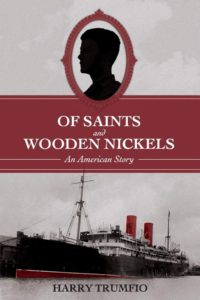
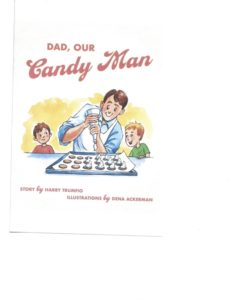

Poet Trudy Kleckner
By allowing long stretches of daily quiet, I invite my muse, the voices of nature, and my own spirit to speak to me. And they do. Often, I take dictation from the universe. The more I unplug from the noise of modern life—television, text messages, music, screaming headlines—the more I am able to tune in to the words of creation. These words become my poems.
by Trudy Kleckner
when a red bird sings
atop a leafless tree
and
brown grass turns green
overnight
and
popcorn clouds dot
azure sky
and
robins hop
in search of fat worms
and
buds appear on trees
unfurling chartreuse beauty
and
warm breezes caress my face
then
i exhale
inhale smile rejoice
spring
has arrived
Today’s interview is with a novice voice who took a bold step into the world of writers to publish a memoir, which goes to prove that anyone can write a memoir.
You decided to write a memoir but you’re a nobody with a seemingly mundane life. Why?
A nobody!? Meeeeoooow! Quite the catty remark from someone looking to me for answers
and inspiration, wouldn’t you agree? Swatting your slight aside, let me just say that most writers know that there are no mundane lives, only poor creatures who plod through a boring
existence without imagination, curiosity, or spunk. Those who settle for skim milk instead
of insisting on cream.
I say “seemingly” because you do come across some challenges, one being orphaned at a young age. How did you get through it?
The cobble-stoned streets of Brussels were a mean but very effective teacher. To survive, I learned not to behave as a victim. Heck, the ordeals I’ve endured could fill one lifetime or even nine. I’m curious by nature and quite fearless. I didn’t do it all alone though. Even a solitary stray like me needs scraps of compassion from time to time. My success and survival depended upon the kindness and aid of an array of acquaintances and strangers.
Who do you find to be the most interesting character in your book?
Your question implies that either I can’t pick myself or I shouldn’t do so. Really, the entire story revolves around me. Who could possibly be more interesting than the hero of the memoir? But if I must choose another character, I’ll say Rex. Why? He’s about as complex as characters come. What we see isn’t what we get. A classic anti-hero with rough edges and a mean streak but also a heart of gold. A bark definitely worse than his bite. Rex is someone who isn’t easy to befriend. But he’s someone, nonetheless, whose friendship is its own reward. Continue reading
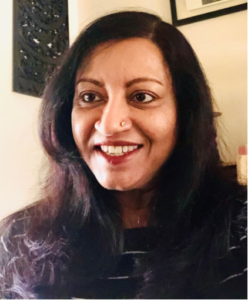
IndRani Mondal
IndRani Mondal has co-authored two novels of (medical) science fiction ‘Bugging Cancer’ and ‘Three Daughters, Three Journeys’. She has written and published two books of Bengali poems, ‘Protidin Sati Hoi’ (The Daily Sunder) and ‘Raater Sarir’ (Body of the Night). ‘Fugitive Wings’ is her first book of English verse and ‘P-I-E-C-E-S’ is her second, both available on Amazon. Below is a poem she wrote in gratitude of the Barrington Writers Workshop.
BWW Inspired
I enter the words, worlds, hemispheres,
immerse in high waves of wonder
surface on unregistered shores
witness new horizons
that birth the sun, moon, constellations,
I survive
the parched predictable present
of stale habit.
I dress in glowing fluid rhythm
I live in love
elusive in uncaring everyday
of sound, cadence, flow
leading me beneath a full sky
spilling turquoise laughter
even when tears brim & heart is heavy.
I can suddenly fly
immobile in front of my laptop,
marvel at minds, smiles, nods, hi-s,
get intrigued by plots, styles, language
explore spaces exotic ancient
passed differences of time, geography,
soar beyond stereotypes.
I recreate me seamlessly
regenerate revive
three hours every week –
I enter life bashed, extinct
I exit surprised
take time to recognize me
reincarnated as Avatar!
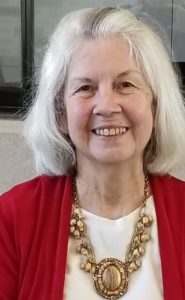 With a new year come lots of new beginnings. Author Georgann Prochaska talks about how she begins a story and how important good beginnings are. Georgann holds a degree in literature, taught high school English classes for 34 years, and has published seven books since 2014.
With a new year come lots of new beginnings. Author Georgann Prochaska talks about how she begins a story and how important good beginnings are. Georgann holds a degree in literature, taught high school English classes for 34 years, and has published seven books since 2014.
How does the beginning of a book idea come to you?
I usually begin with a what-if. What would happen if after a woman’s death, her family publishes 20 years of her private correspondence with neighbors to a blog? Or what if a vulnerable person like a migrant worker’s child or a homeless woman who lives in a vineyard holds valuable information about a murder? For me, mysteries begin with discomfort.
What do the beginnings of your stories have to include?
A problem (not necessarily murder), and sleuths to swing into action. I ask myself what determines a character’s response. For example: Madtree begins with a delayed wedding, the arrival of police cars, some guests not what the bride expected, and the groom’s odd behavior. What causes unusual behaviors? Luckily, a posse of friends stands ready to snoop. Continue reading
 Thanksgiving is a time for reflecting on feelings of gratitude. We asked Barrington Writer Workshop members to share their thoughts on what they are grateful for about the group.
Thanksgiving is a time for reflecting on feelings of gratitude. We asked Barrington Writer Workshop members to share their thoughts on what they are grateful for about the group.
I am thankful for BWW providing a supportive, challenging space for me to imagine my writing as more than I now know it to be. – Ed Plum
I give thanks to see BWW thriving after 50-plus years of sharing words and work and friendship! – Jean Tolle
I am thankful for the sense of community and for the insightful critiques from a variety of viewpoints. In particular I am grateful that BWW has helped me to become a better writer.
– Lance Erlick